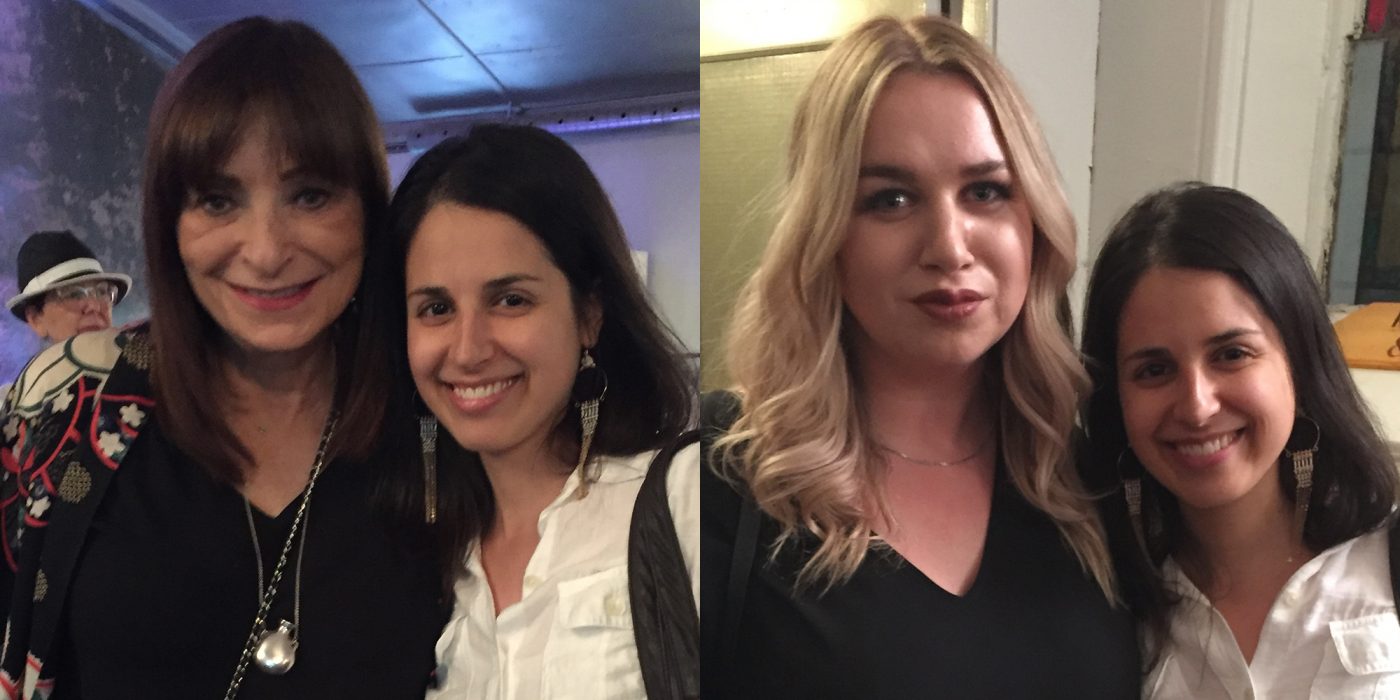Each month, Parvati Magazine features designers who lead the frontier of fashion—created sustainably and consciously throughout the production cycle. This month, that work led me to Canada’s Sustainable Fashion Awards. This annual event is organized by Fashion Takes Action (FTA), a Canadian not-for-profit founded in 2007 to support the sustainable fashion industry on an international scale. FTA members who applied for consideration in this year’s awards were evaluated by a jury based on their sustainability practices, design, and business prowess. The jury chose three finalists, the winner of whom would be revealed by Canada’s fashion maven, Jeanne Beker herself. Since I grew up watching FashionTelevision, which Jeanne hosted for 27 years, this was a high point of the event for me.
When I arrived at the venue, Berkeley Church in downtown Toronto, there was a familial vibe among the industry colleagues. I spotted Jeanne in the crowd and eagerly waited until she had a free moment. Then, with my inner teenager full of nerves at the prospect of meeting this icon, I went over and introduced myself. She graciously shared her long-time insight on the fashion industry.
On the current state of eco-fashion, she told me, “Anyone with a brain knows that it’s all we can hope to do. But it’s going to take a long time because it’s an attitude towards consumerism that really has to change… This is definitely a step in the right direction. It’s exciting to see what might happen.” On sustainable clothes, she added, “I think the progress that’s being made in developing new fabrications and not just creating more garbage on the planet—obviously that’s what the crux of it really is all about—is the most exciting thing for most designers that I talk to.”
After speaking with Jeanne, I was approached by Catherine Chong of Humber College, and was delighted to learn that two of her students, Lauren Desouza and Sandra Morose, had personally created the award to be given that night, from repurposed materials. Then we all made our way downstairs for the panel with the top three finalists: the outdoor clothing brand ANIÁN, the women’s clothing line Obakki, and the denim company Triarchy.
Jeanne spoke with each designer individually, and then a thoughtful and passionate group discussion touched on the need for eco-fashion education to change the mainstream consumer behaviour, a commitment to environmental protection, and the responsibility to create clothing with social and humanitarian integrity.
After the discussion, Jeanne revealed the winner to be Obakki and presented the award to their marketing director, Sola Desgagne. When I caught up with Sola afterwards to congratulate her, she said, “There’s no other way… in the past it has been ‘We want to do something, we should do something.’ And now, we simply must do something. This industry is just on the cusp. It used to be that there were sustainable brands and then fashion brands, two different things. It was actually to the point where Obakki didn’t always talk about our sustainable efforts. It was either a deterrent or it wasn’t a huge motivator for purchase. And now, people are starting to recognize that those two things can live together, and that there’s just as much fashion in the sustainable landscape.”
Adam Taubenfligel of Triarchy, who had been engaging during the panel, shared with me that he had had a sobering moment years ago after he and his team watched the film “The True Cost”. “We said, ‘We’re done. We don’t want to be part of this problem… [so] are we quitting? Or doing something better?’” On the horizon for Triarchy, he says, are greater sustainable production practices. “I’m working on some LA-made, sustainably produced denim—using 98% less water than traditional.”
One of ANIÁN’s new products also stood out. Paul Long, designer and co-owner, told me, “Our biggest excitement right now is releasing a completely natural hard shell. It’s 100% waterproof, 100% breathable, and 100% cotton. It’s the first of its kind in the world to be a full natural-fibered hard shell … it’s woven so tightly together that you’re using the natural properties of cotton. When it gets wet, it expands and it becomes an impenetrable membrane. So I’m pretty stoked on that.” It was also refreshing to hear Paul’s desire to see “a lot more people switching to natural fibers. That’s a big one for me. I think it’s going to be the smaller companies that really spearhead that movement.”
This was my first eco-fashion event, but it won’t be my last. FTA set the bar high with warmth and camaraderie among the finalists and community at large. I walked back to my car afterwards feeling uplifted by the chance to speak with people striving to not only make fashion, but to create in harmony with their social and physical environment.












